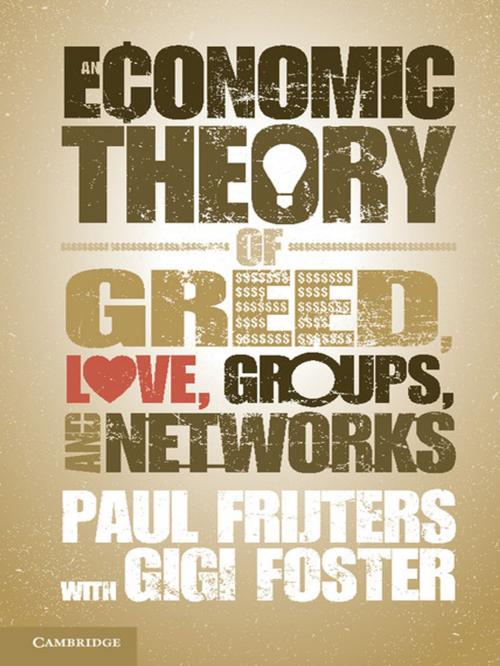An Economic Theory of Greed, Love, Groups, and Networks
Business & Finance, Economics, Nonfiction, Health & Well Being, Psychology| Author: | Paul Frijters | ISBN: | 9781107357662 |
| Publisher: | Cambridge University Press | Publication: | March 7, 2013 |
| Imprint: | Cambridge University Press | Language: | English |
| Author: | Paul Frijters |
| ISBN: | 9781107357662 |
| Publisher: | Cambridge University Press |
| Publication: | March 7, 2013 |
| Imprint: | Cambridge University Press |
| Language: | English |
Why are people loyal? How do groups form and how do they create incentives for their members to abide by group norms? Until now, economics has only been able to partially answer these questions. In this groundbreaking work, Paul Frijters presents a new unified theory of human behaviour. To do so, he incorporates comprehensive yet tractable definitions of love and power, and the dynamics of groups and networks, into the traditional mainstream economic view. The result is an enhanced view of human societies that nevertheless retains the pursuit of self-interest at its core. This book provides a digestible but comprehensive theory of our socioeconomic system, which condenses its immense complexity into simplified representations. The result both illuminates humanity's history and suggests ways forward for policies today, in areas as diverse as poverty reduction and tax compliance.
Why are people loyal? How do groups form and how do they create incentives for their members to abide by group norms? Until now, economics has only been able to partially answer these questions. In this groundbreaking work, Paul Frijters presents a new unified theory of human behaviour. To do so, he incorporates comprehensive yet tractable definitions of love and power, and the dynamics of groups and networks, into the traditional mainstream economic view. The result is an enhanced view of human societies that nevertheless retains the pursuit of self-interest at its core. This book provides a digestible but comprehensive theory of our socioeconomic system, which condenses its immense complexity into simplified representations. The result both illuminates humanity's history and suggests ways forward for policies today, in areas as diverse as poverty reduction and tax compliance.















